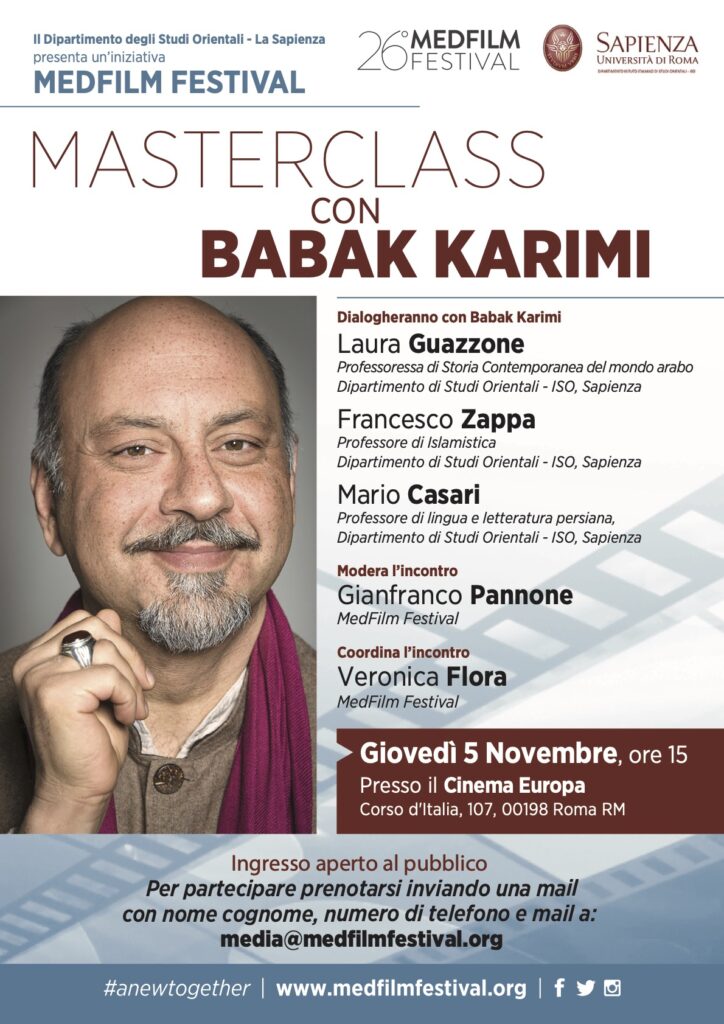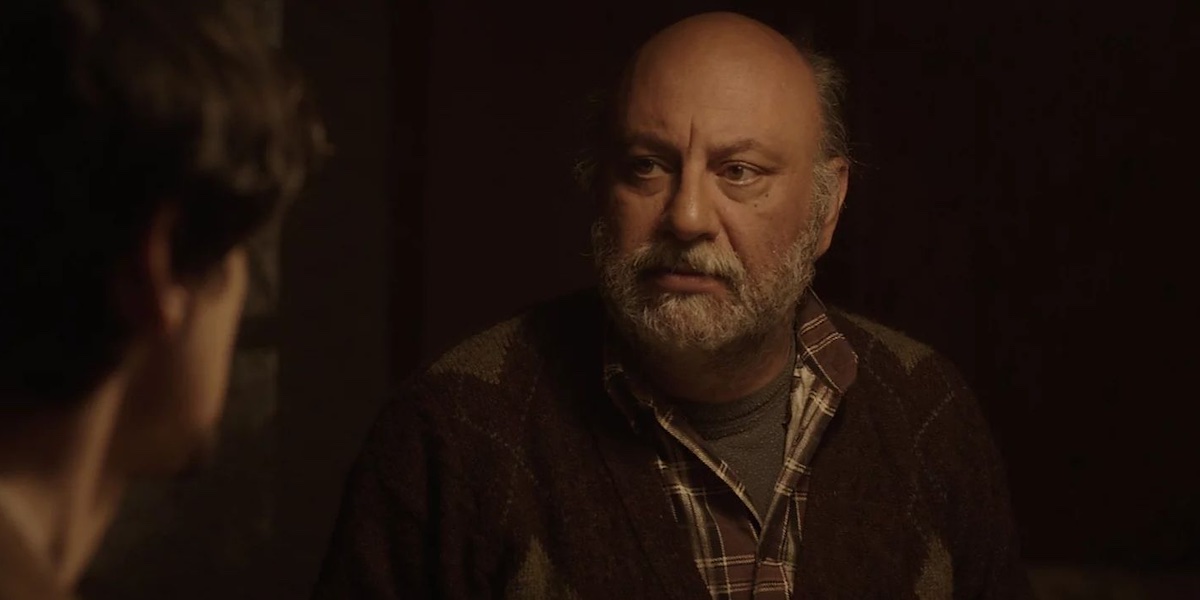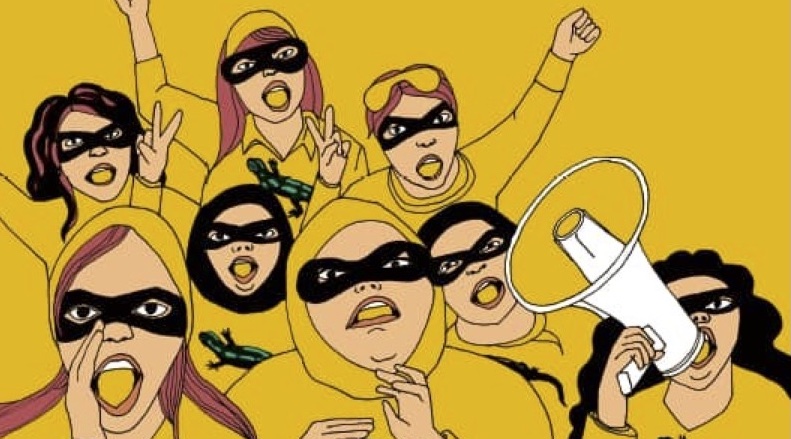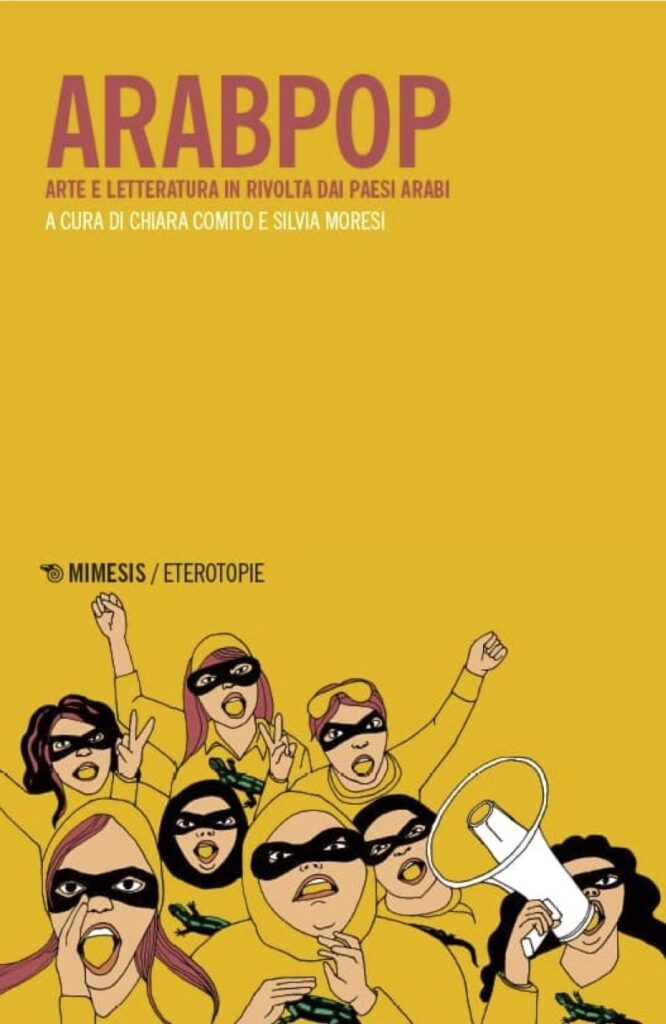Iranian-born actor and editor, son of director and actor Nosrat Karimi and actress Alam Danai. It carries out his activity between Italy, Iran and France. He made his debut in front of the camera at the age of ten, in that is considered the first film of Iranian neorealism, Doroshkechi (The coachman, 1971). The same year he moved to Italy where he studied cinema specializing in shooting and editing. For fifteen years he devoted himself to the making of documentaries as an operator and editor. In 1991, in collaboration with the painter Mahshid Mussavi, he brought to Italy the first Iranian film officially distributed in commercial theaters, Bashu, the little foreigner by Bahram Beyzai. In the following years he worked on interconnection and promotion between Italy and Iranian cinema, writing the Italian dialogues for the films of Kiarostami, Makhmalbaf, Panahi, Jalili, Farhadi and collaborating as a consultant with various festivals and reviews. As an editor he has worked with Abbas Kiarostami, Babak Payami, Vera Belmont, Pasquale Scimeca, Maurizio Zaccaro, Gianfranco Pannone and others. He has been a lecturer in editing at the Experimental Center of Cinematography in Rome and the Accademia dell’Immagine de L’Aquila. In 2011 he starred in the film A Separation by Asghar Farhadi (winner of the Golden Bear in Berlin and the Academy Award for Best Foreign Film) winning the Silver Bear for Best Actor.
The partnership with Farhadi will also continue with the director’s second film, The Past. In both cases, Karimi oversaw the dubbing and personally dubbed his characters in Italian. In 2016 he starred in the film winner of the Prix du Scénario at the 2016 Cannes Film Festival The Client, also directed by Farhadi. Other films: Fish Dead by Ruholla Hejazi (Iran 2016); Noces by Stephan Straker (Belgium-France-Luxemburg 2016); Invasion by Shahram Mokri (Iran 2017); As long as there is Prosecco there is Hope by Antonio Padovan (Italy-2017); The Vertical Line by Mattia Torre (Italy 2018); Gaze (short) by Farnoosh Samadi (Iran 2017); A Nameless Story by Roberto Ando ‘(Italy-2018); Delay (short) by Ali Asgari (Iran – 2018); Il Seems My Son by Costanza Quatriglio (Italy 2018); of The Role (short) by Farnoosh Samadi (Iran 2018); Iron Deficiency of Azadeh Abadpur (Iran 2019); Yalda by Massoud Bakhshi (Iran, France, Germany, Luxemburg 2019); Children of Giuseppe Bonito (Italy 2020); Winter by Giulio Mastromauro (Italy 2020); Careless Crime by Shahram Mokri (Iran 2020), We Have To by Reza Dormishian (Iran-2020), Cinema Shahre Ghesse by Keyvan Alimohammadi and Omid Bonakdar (Iran, 2020), The Life Ahed (La Vita Davanti a Se) by Edoardo Ponti (Italy-USA, 2020) (see complete bio attached)




